AKP MP, Turkey’s CoE representative Türkeş says he’ll visit Kavala in prison
In an interview with Duvar, ruling AKP MP and Turkey’s Council of Europe representative Tuğrul Türkeş said he would visit Gezi prisoner Osman Kavala soon and criticized the long trial period the latter endured.
Can Bursalı / DUVAR
The period when Tuğrul Türkeş switched from the Nationalist Movement Party (MHP) to the Justice and Development Party (AKP) was one of the most chaotic times in Turkey. In the June 7, 2015 elections, the AKP lost its majority to rule without a coalition since its foundation.
Afterwards was a period of terror in Turkey with suicide bombings, the forces behind which are still unclear today.
Six months later, in the November 1, 2015 elections, the AKP once again won a majority. The Prime Minister at the time, Ahmet Davutoğlu, said that the terrorist attacks had increased their votes.
Türkeş served as Deputy Prime Minister both then and under Binali Yıldırım, who replaced Davutoğlu after the latter was removed as Prime Minister. Now, Türkeş represents Turkey at the Council of Europe.
Tuğrul Türkeş, the son of MHP founder Alparslan Türkeş, continues his political career in the AKP. He is also Turkey’s Council of Europe (CoE) representative.
In this period, he stands out especially with his call for a “return to the law” in the Gezi trial. Hilal Zengin, the niece of Türkeş's old friend AKP MP Mürteza Zengin, has taken on the role of Osman Kavala's lawyer. Supported by Türkeş, Zengin's applications for a retrial since April 1 have not yet yielded results.
In an interview with Duvar, Türkeş said he would visit Kavala in prison, saying “This is true nationalism.”
Criticizing the long trial period of Kavala, Türkeş called for improvements in the judiciary.
The translation of Türkeş’s interview is below.
In Turkey, there is an emphasis on “being national” (“millilik” in Turkish) that became an agenda through judicial processes. In your last statement, you looked from a more libertarian perspective. At the moment, there are two different wings, those who are “national” (“milli”) and those who are not. Are you or the other group not national?
I will not speak by targeting any individual. Let me state at the beginning that what I say is only binding on me, I am not speaking on behalf of the AKP here. Are you doing something for the benefit of the country or not, this is how nationality is measured. Turkey is in a very important geography, it has a state tradition. How we carry Turkey into tomorrow is important. The past is only useful for us as a laboratory. We need to look to tomorrow. When we look to tomorrow, we need to ask what we can do to make Turkey a more developed and modern country. If there is no benefit in this regard, a man can hug a flag, but in my opinion, he is not national. I am not targeting any individual or party. There may be very respectable people on one side, and they may have very good ideas, but if that idea belongs to yesterday, it is nothing to me, it is a story.
Mehmet Uçum, the Chair of the Presidential Legal Policy Board, mentioned the concept of a “national judiciary” in the discussions on the Gezi trial, a concept in which you have also expressed your opinion openly. Later on, we saw that decisions were made in the Gezi trial in line with Uçum's opinion. You represent Turkey at the Council of Europe, what is the reflection of the concept of “national judiciary” there?
We have applied to the Council of Europe ourselves. We have been a part of the European Court of Human Rights since its establishment, and we have been sending judges. Mevlüt Çavuşoğlu was the president of the Council of Europe for two years. This was a source of pride. If you want to be a part of these places as a measure of development, you will heed the warnings. But there have been crazy discussions in the last period. In a nutshell, they say to us in Europe, “If you think domestic law is enough for you, we don't mind, you can leave.”
Osman Kavala’s situation, for example, is like a laboratory. It should be underlined in red. Osman Kavala was not convicted of espionage. There was no evidence for that charge and he was acquitted. He was tried in the Gezi Park case. But would a trial last seven years?
There are people on social media who say, “It is clear why Tuğrul Türkeş is interested in this case.” What a mindset.
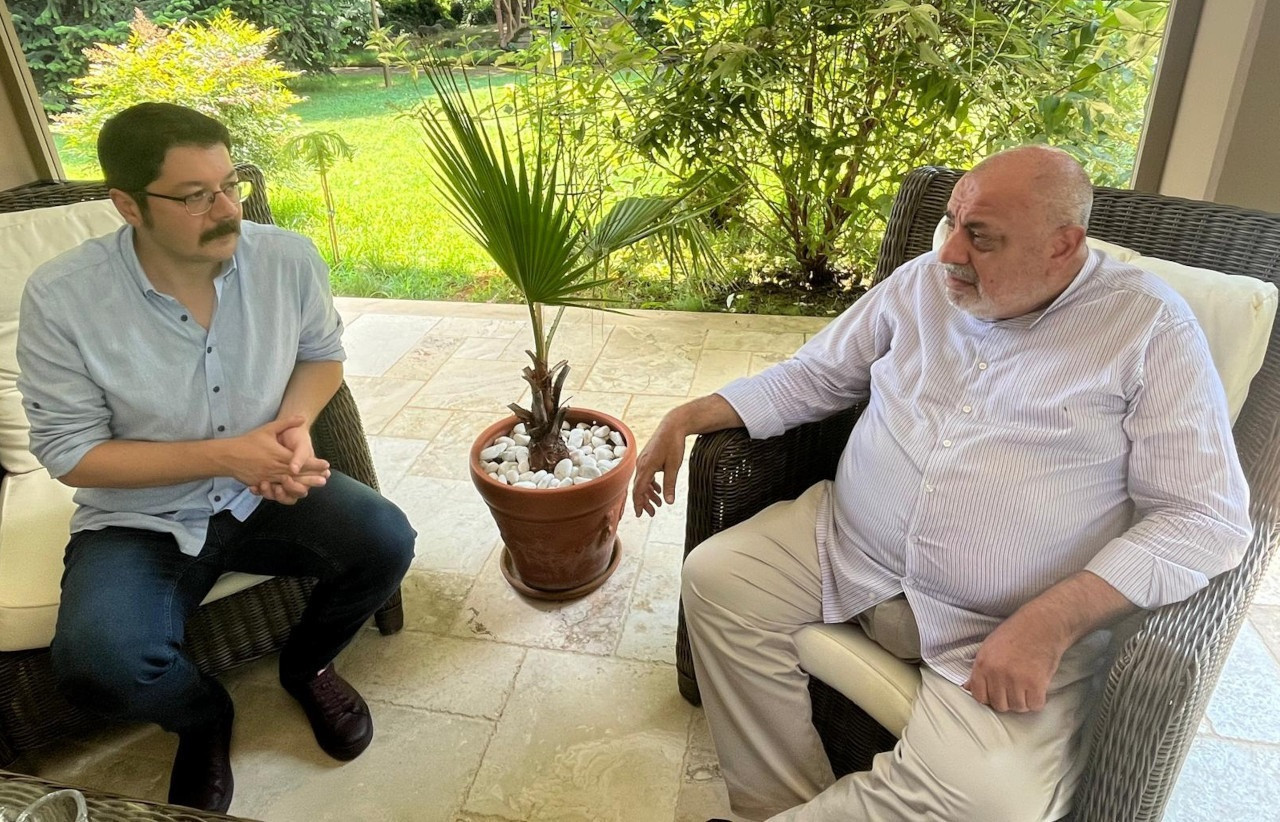
Stefan Schennach, the Council of Europe Rapporteur on Turkey, visited Turkey in June. He also visited prisons, especially Osman Kavala and Selahattin Demirtaş. He also thanked you after the visit. Will there be a change in the Council of Europe's approach towards Turkey after this visit?
They wanted to meet with the relevant institutions of the state, I helped them with their appointments. We obtained the necessary permissions for their prison visits and made them meet. During his visit to the Court of Cassation (“Yargıtay”), a female prosecutor apparently told him, “Why are you so interested in this case, they are worse than the PKK.” Schennach later said he found this statement strange. “The PKK has killed people, but there is no evidence that they have done anything like that (in Gezi),” he said. The person you sent to meet with the foreign delegation says this. On what grounds?
Do you think Osman Kavala has become a symbol?
Yes, he became a symbol of long trial periods. In the last 14 months, we had a general election and a local election. We won the general election, but in the local election, as the media put it, there was a red wave. Why? Our economy is not good. Thanks to Mehmet Şimşek, our minister is working, but because the law does not work efficiently, we have difficulties in improving the economy. Actually, the issue is not Kavala.
When you look for loans, you can't get them at the real price. You pay more interest. Why? Because some review organizations look at the state of the law in Turkey and come up with more interest. This excess interest is a burden on your national budget. We need to get rid of this. If you bring the trials to a reasonable level and improve the law, the economy will also improve. We cannot get a serious flow of money to Turkey from the West. We cannot bring investors. Investors want to invest their money somewhere. They have finance and resources. You cannot bring them. Why? Because of long trial periods. If the man wanted to escape, he would have escaped. You first imprison him, then you release him. Then, you imprison him again at the door. You need to explain this abroad. Nationalism? Here's nationalism.
Özgür Özel referred to you during his visit to the Council of Europe in May and said, “You ask (the CoE) ‘what time is it?’ and they say Osman Kavala.” MHP leader Devlet Bahçeli targeted this statement. As the person who maintains contacts at the highest level, do you directly convey the developments at the Council of Europe to the President (Erdoğan)? Is your account taken into consideration?
Certainly the institutions of the state, the relevant levels of the state are informed. But do they have to comment on everything? No, they don't. Conclusions can be drawn from both the comments and the lack of comments. The issue here is those who are trying to suppress and manage the judiciary through a security bureaucracy. They have a resistance. These events are a result of their resistance.
Did you convey your contacts directly to the President?
I don't need to notify the presidency alone. This information comes from many places. Of course, we convey the contacts we have made. What are we doing if we don't? We inform the Foreign Ministry and the Presidency.
A new committee was formed for Osman Kavala's application for a retrial. While everyone was waiting for a breakthrough, the new panel also rejected the application...
Half an hour after the committee was formed, it rejected the application. I read a 16-page petition in about one hour. I am not a lawyer, but I understand these things. In that half an hour, they also received an opinion from the prosecutor. Surely they work very efficiently and terrifyingly! But if you make a decision in half an hour, it means you are familiar with 30 folders of the file. However, the man has been in prison for seven years, he would have waited seven more days. God bless them, they seem to be sensitive when it comes to long detention periods!
Are you pointing to an (order)?
I don't know. I talk about what I know. But I found the rejection in half an hour interesting.
I can't help but ask because of your political background and your family. What do you think about the murder of Sinan Ateş?
The murder of Sinan Ateş is not a political murder. Political cases are being analyzed on the grounds that some of the perpetrators belong to ideological structures. A political murder is the killing of someone with opposing views. There is nothing like that here. I don't want to talk in detail. There is a grieving family. There are young children. But the lady who is his wife comes out and says “men were beaten in Sinan's time too.” This is what I find strange. Why do you beat each other up?
Journalists were attacked during the period when Sinan Ateş was the head of the Grey Wolves...
Our MP friend was beaten with a hammer. He is an old nationalist (“ülkücü”) friend of ours; Selçuk Özdağ. If his bodyguard had not intervened, we would have said God rest his soul.
Isn't this a political attack?
No, what happened, did Selçuk Özdağ give up on his idea? This is vandalism. Two years ago, I wrote an article titled “Rampant Nationalism” and addressed these attacks. Every segment of society should have objected to these attacks. We come back to the same place; lawlessness. If we do not make the law prevail in every field in Turkey, no one will be able to find their way home.
The situation is regarded as this: In that political atmosphere and community, such attacks are considered normal. Do you think so?
These things didn't used to exist. Not in our time.
In your time people were killing each other in the streets...
That’s completely different. Before the September 12, 1980 coup, in a bipolar world after the Second World War, the defensive work against Soviet expansionism is another story. Of course, men were killed there. But it cannot be compared to today. In the later period, people said about the late (Alparslan) Türkeş, “We didn't know him like this. What a darling man, how constructive, peaceful.” When the respected Devlet Bahçeli became the leader of the MHP, they said, “'He gathered young people from the streets, put computers in their hands, well done.” Journalists from the left became Bahçeli sycophants.
Why didn't anyone react when Selçuk Özdağ and Suat Başaran were attacked? Where were the rightists and leftists when these attacks were taking place? These were the works of Sinan Ateş's time.
That's why they say that it (the violence) has become something traditional in that community...
Crime has no tradition. The issue is the future of Turkey. That is why our number one priority is the rule of law.
You constantly emphasize the rule of law. Do you have a solution?
The two issues before Turkey are the law and the economy. If we can solve these, we will solve the problems for Turkey's future. I have never seen Osman Kavala in my life. Rapporteur Schennach had an appointment with Ekrem İmamoğlu. İmamoğlu canceled that appointment, he was taking his children on vacation again. (Schennach) took this opportunity to visit Osman Kavala and Selahattin Demirtaş. Our minister Yılmaz Tunç arranged the necessary permits. (Schennach) asked me, “Will you accompany me?” I said, “No, you can exchange ideas comfortably.”
When he went to the prison, Kavala apparently asked, “Is Mr. Tuğrul not here?” Later, when (Schennach) met with Kavala’s wife Ayşe Buğra, he was asked the same question. I guess they thought to themselves, “There is a crazy person called Tuğrul, he tweets and stuff.” I don't have that much contact with them. I do not share their political views.
Do you plan to visit Kavala?
I asked our Minister Yılmaz Tunç for permission to meet him at an appropriate time. I will visit him sometime. I will see Osman Kavala for the first time during that visit. This is true nationalism and patriotism. This is the nationalism I was taught. It is necessary to find resources for Turkey in the best conditions. Also, I am the child of a father who spent seven years of his life, one tenth of his life in prison.
(English version by Alperen Şen)

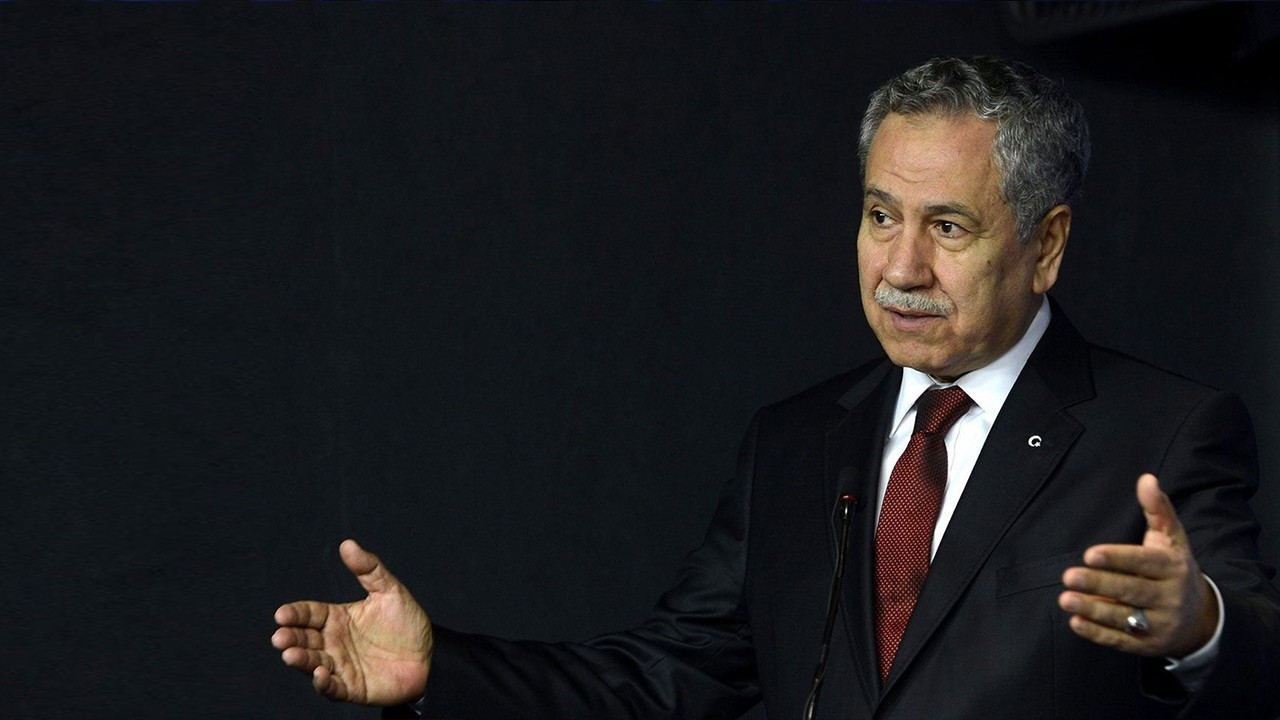 Presidency and AKP leadership should be separated, former AKP official Arınç says in an interview with DuvarPolitics
Presidency and AKP leadership should be separated, former AKP official Arınç says in an interview with DuvarPolitics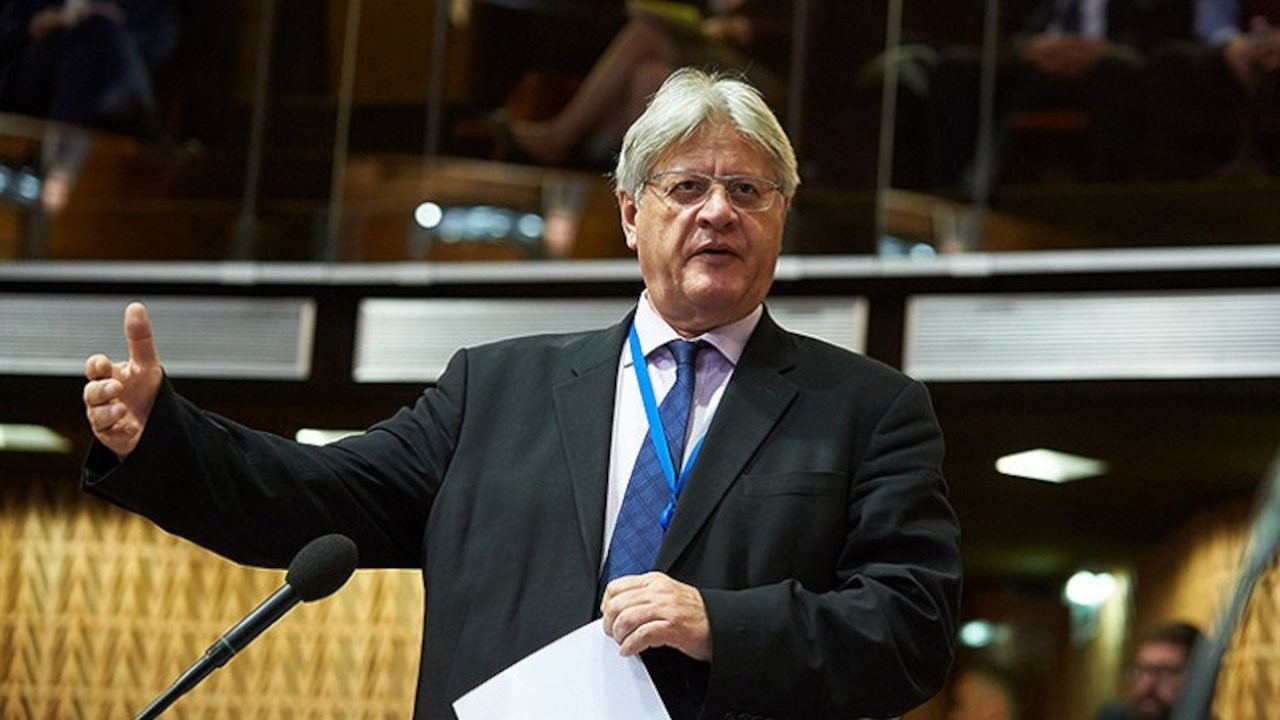 Council of Europe rapporteur calls for Demirtaş, Kavala’s release upon visitHuman Rights
Council of Europe rapporteur calls for Demirtaş, Kavala’s release upon visitHuman Rights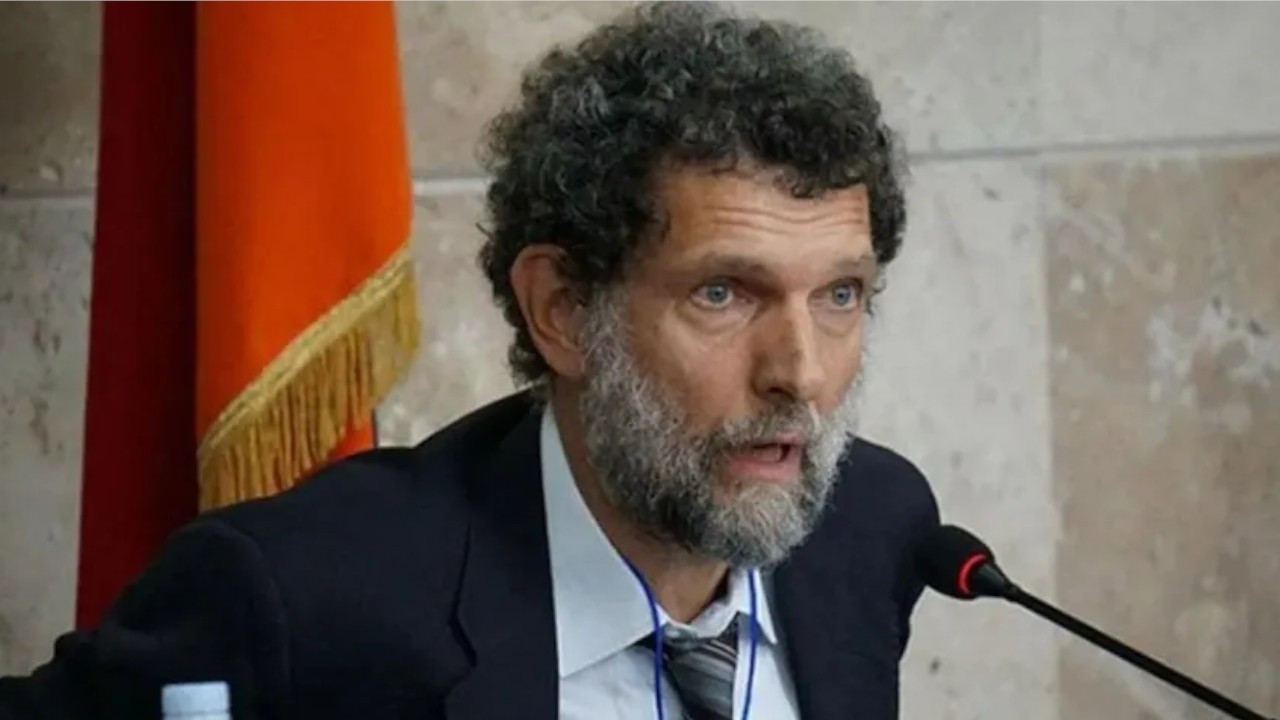 Turkish court denies Kavala’s retrial for third time against expectations Human Rights
Turkish court denies Kavala’s retrial for third time against expectations Human Rights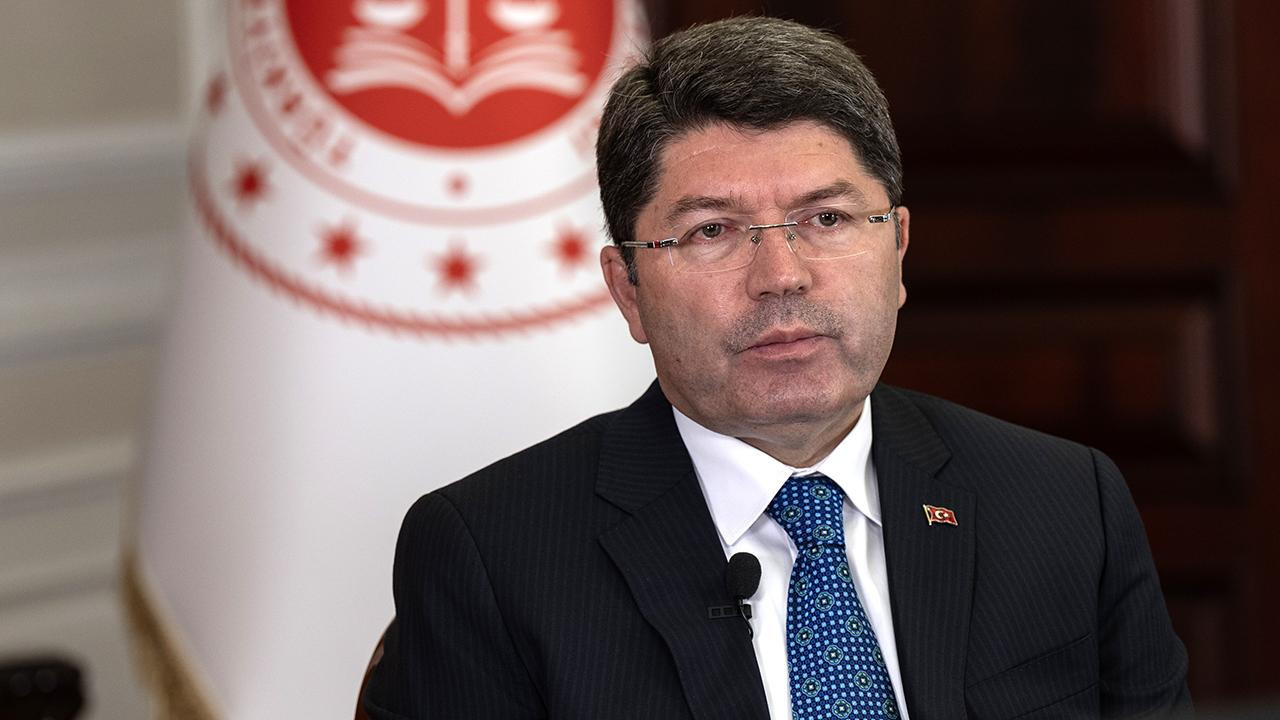 Turkey's Justice Minister: ‘ECHR ruled Kavala, Demirtaş cases with political concerns’Human Rights
Turkey's Justice Minister: ‘ECHR ruled Kavala, Demirtaş cases with political concerns’Human Rights